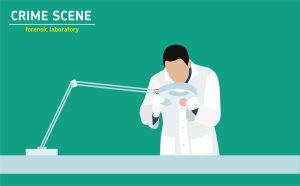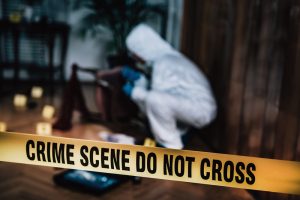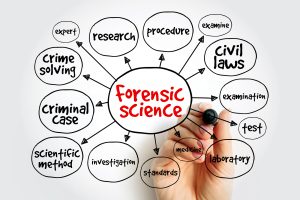By – James M. Katz, BA
Forensic nursing is a specialized field that bridges the gap between healthcare and the legal system. This unique nursing specialty combines medical expertise with investigative skills to address health issues related to violence, trauma, and criminal activities. Forensic nurses play a crucial role in providing care to victims of abuse, collecting and preserving evidence, and collaborating with law enforcement agencies to support legal proceedings.
In this comprehensive guide, we’ll explore the various aspects of forensic nursing, including the role of forensic nurse practitioners and the requirements for becoming a certified forensic nurse examiner. We’ll delve into the different specializations within this field, such as Sexual Assault Nurse Examiners (SANE) and death investigators. Additionally, we’ll discuss the forensic nursing process, ethical considerations, and the challenges and rewards of this demanding yet fulfilling career path in healthcare and criminal justice.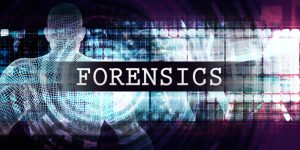
The Role of a Forensic Nurse
Forensic nursing is a specialized field that combines healthcare with the legal system. These professionals work at the intersection of nursing and criminal justice, providing care to victims of violence, abuse, and other traumatic events. Their role is multifaceted, encompassing patient care, evidence collection, and legal testimony.
Patient Care
The primary responsibility of a forensic nurse is to provide compassionate care to patients who have experienced trauma. This care extends beyond physical treatment to include emotional and psychological support. Forensic nurses commonly work with victims of domestic violence, sexual abuse, and child abuse. They may also assist families of individuals targeted in violent crimes.
In addition to treating victims, forensic nurses may sometimes evaluate alleged perpetrators when necessary. Their work settings vary, including hospitals, domestic violence centers, psychiatric facilities, and even legal criminal justice institutions such as coroners’ offices or prisons. The holistic approach of forensic nursing involves addressing the body, mind, and spirit of the patient. The medical well-being of the patient remains the primary objective during examinations. Forensic nurses employ a trauma-informed approach, ensuring that victims feel safe and supported throughout the examination process.
Evidence Collection
One of the crucial aspects of a forensic nurse’s role is the collection and preservation of evidence. This task requires meticulous attention to detail and adherence to strict protocols to ensure the admissibility of evidence in court. Forensic nurses conduct thorough forensic examinations, documenting injuries, collecting biological samples, and preserving evidence in a manner that maintains the chain of custody. They use specialized skills in forensic assessment and documentation, often employing techniques such as forensic photography.
The evidence collection process begins with taking a comprehensive history from the patient. Nurses are trained to document statements exactly as they are made, using quotation marks for verbatim quotes and avoiding paraphrasing or interpretation. This accurate documentation can be crucial in legal proceedings.
Forensic nurses also play a vital role in maintaining the chain of custody for collected evidence. This involves documenting every step of the evidence handling process, from collection to storage and transfer to authorities. A properly maintained chain of custody is essential for the integrity and admissibility of evidence in court.
Legal Testimony
Forensic nurses often serve as expert witnesses in legal proceedings, providing testimony that can significantly impact the outcome of a case. Their role in court involves explaining medical aspects of a case, interpreting forensic evidence, and sometimes debunking myths about trauma. When testifying, forensic nurses may be called as either fact witnesses or expert witnesses. As fact witnesses, they testify only about what they did and observed during patient care. As expert witnesses, they can provide opinions and educate the court on specialized knowledge related to sexual assault exams, patient behavior, and mechanisms of injury.
It’s important to note that forensic nurses must maintain neutrality and objectivity in legal proceedings. They should be prepared to speak with both prosecutors and defense attorneys about their examinations, always respecting patient privacy and confidentiality in accordance with HIPAA rules. The ability to provide clear, concise, and accurate testimony is a crucial skill for forensic nurses. Their testimony often carries significant weight in legal proceedings due to their specialized knowledge and credibility as healthcare professionals.
In conclusion, the role of a forensic nurse is complex and demanding, requiring a unique blend of medical expertise, investigative skills, and legal knowledge. These professionals play a vital role in both healthcare and criminal justice systems, providing compassionate care to victims while also contributing to the pursuit of justice.
Specializations Within Forensic Nursing
Forensic nursing encompasses various specialized roles that cater to different aspects of healthcare and legal systems. These specializations allow nurses to focus on specific areas where their expertise can make a significant impact.
Sexual Assault Nurse Examiners (SANE)
Sexual Assault Nurse Examiners (SANEs) play a crucial role in providing compassionate care to survivors of sexual assault. These specially trained nurses administer forensic examinations and offer holistic nursing care to patients who have experienced sexual trauma. SANEs work primarily in hospitals and health clinics, serving as the first point of contact for sexual assault victims.
To become a SANE, registered nurses must complete a 40-hour class and 40 hours of clinical training. This specialized education prepares nurses to handle both the physical and psychological aspects unique to trauma and assault victims. SANEs are trained to collect forensic evidence, provide comprehensive care, and offer emotional support to survivors.
Research has shown that patients cared for by SANEs are more likely to receive recommended treatment in the emergency department. For instance, these patients are more often offered advocate services, medical forensic exam kits, and resource packets. The unique, trusting relationship that SANEs build with their patients allows survivors to have more control and choices surrounding their care decisions.
Death Investigators
Forensic nurses can also specialize as death investigators, working in coroners’ or medical examiners’ offices. In this role, they examine bodies to determine causes of death and collect evidence for crime scene investigations. Death investigators play a vital role in the medicolegal system, bridging the gap between healthcare and law enforcement.
When called to a scene, forensic nurse death investigators must meticulously document their findings of the body and its surroundings, both in writing and through photographs. They collect evidence from the body and the surrounding area, understanding what may be pertinent as the investigation progresses. Throughout this process, they must maintain a proper chain of custody to ensure the evidence is admissible in court. Death investigators must work collaboratively with police and other officials involved in the case. Their documentation needs to be detailed, descriptive, factual, and free of opinion and assumption. These professionals may also be called to testify in court as expert witnesses in civil or criminal cases.
Correctional Nursing
Correctional nursing is another important specialization within forensic nursing. These professionals provide healthcare to individuals incarcerated in the criminal justice system, working in settings such as jails, prisons, and juvenile detention centers. Correctional nurses focus on providing nursing care to incarcerated individuals within the correctional environment, regardless of the specific crimes or criminal behavior of the patient.
The role of a correctional nurse is multifaceted. They are often the first healthcare professional to assess an inmate’s medical condition, determining care requirements and either delivering nursing care directly or arranging for the patient to see a physician or advanced practitioner. Correctional nurses must work closely with corrections officers, especially in emergency situations or when monitoring inmates for medical attention.
Unique nursing processes in correctional settings include intake screening, chronic care clinics, medication administration, and nursing sick call. These processes help manage nursing care effectively in jails, prisons, and juvenile detention settings.
In conclusion, forensic nursing offers diverse specializations that allow nurses to apply their skills in various contexts within the healthcare and legal systems. Whether working with sexual assault survivors, investigating deaths, or providing care in correctional facilities, forensic nurses play a crucial role in bridging the gap between healthcare and the justice system.
The Forensic Nursing Process
The forensic nursing process is a systematic approach that combines healthcare and criminal justice skills to provide comprehensive care to patients involved in legal cases. This process involves several key steps that forensic nurses follow to ensure thorough patient care and evidence collection.
Initial Assessment
The initial assessment is a critical first step in the forensic nursing process. During this phase, forensic nurses conduct a detailed evaluation of the patient’s physical and psychological condition. This assessment goes beyond traditional nursing care, as it requires specialized training in clinical assessment, forensic examination, and trauma-informed care.
Forensic nurses obtain a comprehensive medical history, perform a thorough physical examination, and assess the psychological and environmental factors contributing to the patient’s condition. In cases of sexual assault or domestic violence, they carefully identify and document any physical injuries, such as bruises, cuts, or abrasions.
The purpose of this initial assessment is to guide the subsequent steps of the examination, evidence collection, and laboratory analysis. Forensic nurses must be skilled in asking detailed forensic and medical questions related to the assault to obtain the necessary information for a comprehensive evaluation.
Evidence Collection and Documentation
Evidence collection and documentation are integral components of the forensic nursing process. Forensic nurses must be familiar with local laws and regulations governing patient care, privacy, and consent, as well as the appropriate guidelines for managing and preserving evidence. The evidence collection process begins with taking a thorough history. Forensic nurses document statements exactly as they are made, using quotation marks for verbatim quotes and avoiding paraphrasing or interpretation. This accurate documentation can be crucial in legal proceedings.
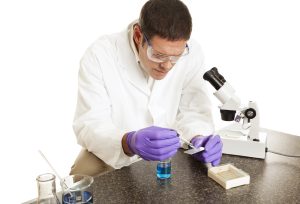 Forensic nurses collect various types of evidence, including clothing, debris, foreign materials, and swabs from the body surface. They use specialized techniques such as alternate light sources to identify potential evidence and follow strict protocols for collecting, packaging, and labeling each item.
Forensic nurses collect various types of evidence, including clothing, debris, foreign materials, and swabs from the body surface. They use specialized techniques such as alternate light sources to identify potential evidence and follow strict protocols for collecting, packaging, and labeling each item.
Photographic documentation of injuries is also an essential part of the evidence collection process. Forensic nurses take detailed photographs of any visible injuries or areas of concern, following specific guidelines to ensure the admissibility of these images in court.
Collaboration with Law Enforcement
Forensic nurses work closely with law enforcement agencies to ensure comprehensive care and meticulous evidence collection. This collaboration is fundamental in handling cases involving physical or sexual assault, abuse, accidental injury, and other instances where health and legal issues overlap.
Effective communication between forensic nurses and law enforcement officers is essential for successful collaboration. This includes regular briefings on the status of medical examinations and findings, as well as discussions about the progress of the legal investigation. Forensic nurses play a crucial role in maintaining the chain of custody for collected evidence. They document every step of the evidence handling process, from collection to storage and transfer to authorities. A properly maintained chain of custody is essential for the integrity and admissibility of evidence in court.
In conclusion, the forensic nursing process is a comprehensive approach that combines medical expertise with investigative skills. Through careful initial assessment, meticulous evidence collection and documentation, and close collaboration with law enforcement, forensic nurses play a vital role in bridging the gap between healthcare and the criminal justice system.
Ethical Considerations in Forensic Nursing
Forensic nursing, a field that bridges healthcare and the legal system, presents unique ethical challenges. Practitioners must navigate complex situations while maintaining professional integrity and upholding ethical standards. This section explores key ethical considerations in forensic nursing, including patient confidentiality, informed consent, and objectivity.
Patient Confidentiality
Maintaining patient confidentiality is a fundamental ethical obligation for forensic nurses. They must adhere strictly to HIPAA rules and their employer’s protocols regarding the disclosure of patient information. Forensic nurses should not discuss a patient’s case with colleagues, attorneys, or any third party without explicit permission from the patient and, if applicable, the attorney calling the nurse as a witness.
When receiving a subpoena for patient records, forensic nurses should immediately consult with their employer’s legal counsel for guidance. Even with a valid subpoena, there may be a duty to inform the patient and allow them an opportunity to challenge the subpoena before releasing records. It’s crucial for forensic nurses to understand that their testimony becomes public record and may be used to assess their credibility and competence. While they have an obligation to assist in the administration of justice, they must maintain neutrality and objectivity throughout the legal process.
Informed Consent
Obtaining informed consent is a critical ethical consideration in forensic nursing. Patients must be fully aware of the procedures they will undergo, not only for medical treatment but also for evidence collection that may affect legal proceedings. This process becomes more complex when dealing with minors, mentally incapacitated individuals, or severely traumatized victims.
Forensic nurses must ensure that consent is obtained in a manner that is both legally sound and ethically correct. They should explain all steps of the examination in a developmentally appropriate manner and give patients the opportunity to cooperate or decline any part of the examination. It’s important to recognize that informed consent is an ongoing process throughout the examination, not just a one-time event when a form is signed.
Special considerations arise when dealing with specific populations, such as unconscious patients or those under the influence of substances. Forensic nursing programs should have clear policies in place to guide the consent process in these situations, ensuring compliance with jurisdictional laws and ethical standards.
Objectivity and Impartiality
Maintaining objectivity and impartiality is crucial in forensic nursing. Nurses must ensure that their care and evidence collection are not influenced by personal beliefs or biases about a patient’s situation or background. This is particularly important in cases involving violence or abuse, where societal and personal prejudices can inadvertently affect professional judgment.
However, it’s important to note that pure scientific objectivity is a myth. Forensic nurses, like all scientists, are influenced by personal experiences, disciplinary theories and methods, and their social environment. Acknowledging this reality allows for transparency and accountability in forensic nursing practice.
Instead of striving for pure objectivity, forensic nurses should aim for “mitigated objectivity.” This approach acknowledges the theory-laden nature of data but attempts to constrain inaccurate interpretations through strong theory, sound scientific practice, and recognition of reality. By embracing this concept, forensic nurses can be honest about their capabilities while enabling disciplinary critique and improvement.
In conclusion, navigating ethical considerations in forensic nursing requires a delicate balance between patient care, legal obligations, and professional integrity. By adhering to ethical principles and guidelines provided by professional nursing organizations, ongoing education, and support from colleagues, forensic nurses can effectively address these challenges and provide high-quality care while contributing to the justice system.
Challenges and Rewards of Forensic Nursing
Forensic nursing is a unique and demanding field that combines healthcare with the legal system. This specialty offers both significant challenges and profound rewards for those who choose to pursue it.
Emotional Toll
The emotional toll of forensic nursing can be substantial. Nurses in this field often encounter patients who have experienced severe trauma, violence, or abuse. This repeated exposure to traumatic events can lead to what experts call ‘vicarious trauma’. Forensic nurses may feel like they are reliving the trauma with survivors as they gather medical histories, ask specific questions, document details, and collect forensic evidence.
The emotional challenges can be particularly intense when dealing with cases involving severe mental illness or despicable crimes. Nurses sometimes struggle with knowing how to reach patients or what to say, especially when the patient’s actions are clearly wrong and unjustifiable. This emotional burden can contribute to burnout, which is a significant concern in the field. One study found that 67% of Sexual Assault Nurse Examiners (SANEs) were at risk of experiencing burnout due to occupational stressors.
Professional Growth
Despite these challenges, forensic nursing offers substantial opportunities for professional growth. This specialty requires a diverse skill set that can be applied to various nursing career paths beyond traditional clinical settings. Forensic nurses have the chance to continuously learn and develop their expertise in areas such as evidence collection, crisis intervention, and legal proceedings.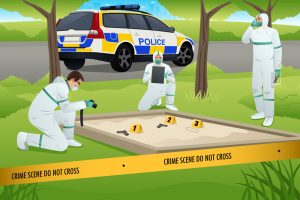
The field of forensic nursing is growing, with increasing opportunities for specialized education https://online.xavier.edu/forensic-nurse-all-you-need-to-know-about-forensic-nursing/ and professional development. Nurses can advance their careers by upskilling, finding a specialization within the field, and acquiring relevant credentials. For instance, becoming a member of the International Association of Forensic Nurses (IAFN) provides access to numerous growth opportunities, including educational resources, networking events, and access to the Journal of Forensic Nursing.
Making a Difference
Perhaps the most significant reward of forensic nursing is the opportunity to make a meaningful difference in the lives of vulnerable individuals. Forensic nurses play a crucial role in providing compassionate care, support, and advocacy for victims of violence, abuse, or criminal acts. They contribute to the pursuit of justice and the protection of public safety through their multidisciplinary approach.
The impact of forensic nursing extends beyond individual patient care. These professionals have the potential to influence policy changes in healthcare, law enforcement, and legal systems that interface with victims and perpetrators of violent behavior. By providing expert testimony in court and educating others about medical-legal evaluations, forensic nurses serve as advocates for truth and justice.
While the work can be emotionally demanding, many forensic nurses find deep fulfillment in supporting and empowering survivors, providing expert guidance, and being a voice for those who have experienced trauma. The ability to contribute to safer, healthier communities and make a significant impact on individuals affected by violence or abuse makes forensic nursing a deeply meaningful profession.
In conclusion, while forensic nursing presents significant emotional challenges, it also offers substantial opportunities for professional growth and the chance to make a meaningful difference in society. For those who can navigate the emotional demands of the role, forensic nursing can be an incredibly rewarding career path.
Conclusion
Forensic nursing stands as a vital bridge between healthcare and the criminal justice system, offering a unique blend of medical expertise and investigative skills. This specialized field has a profound impact on patient care, evidence collection, and legal proceedings, ultimately contributing to the pursuit of justice and public safety. The diverse roles within forensic nursing, from Sexual Assault Nurse Examiners to death investigators, highlight the breadth of opportunities available to those passionate about making a difference in this challenging yet rewarding field.
While the emotional toll of working with trauma survivors can be significant, the chance to empower victims and shape policies makes forensic nursing a deeply meaningful career. The field’s growth opens up new avenues to develop professionally and to specialize further. In the end, forensic nursing not only provides essential care to vulnerable individuals but also plays a crucial role in creating safer communities and upholding justice, making it an indispensable component of both healthcare and legal systems.
Becoming a Forensic Nursing Specialist is an excellent way expand your career as well as help your community! In many cases forensic nurses bridge the gap between criminal justice and the medical field. In order to become a forensic nurse, you would first need to be a register nurse within your state and then you would need to take a forensic nursing certification program such as the online forensic nursing certification program we offer. Our program consists of 5 online forensic nursing courses. Once completed you can apply to become certified in forensic nursing with the AIHCP. For full detail please visit our program here.
Research Articles:
The paradigm of forensic nursing for nursing aspirants in India: Promises, caveats & future directions. Suresh Sharma, Jaison Joseph Jr. Journal of Forensic and Legal Medicine. Volume 86, February 2022, 102321
Access link here
Nurses’ Perspectives of Factors That Influence Therapeutic Relationships in Secure Inpatient Forensic Hospitals. Stevenson, Claire MSc, BSc (Hons), RMN; Taylor, James PhD. Journal of Forensic Nursing 16(3):p 169-178, 7/9 2020.
Access link here
Exploring the role of the nurse unit manager in forensic mental health inpatient units: A qualitative study. Tessa Maguire, Daveena Mawren, Et Al. International Journal of Mental Health Nursing. Volume32, Issue6. Special Issue: PLANETARY HEALTH AND MENTAL HEALTH NURSING. December 2023. Pages 1756-1765
Access link here
The Practice of Forensic Nursing Science in the United States. Williams, Joyce. Forensic Science Review; Birmingham Vol. 34, Iss. 2, (Jul 2022): 90-94.
Access link here

